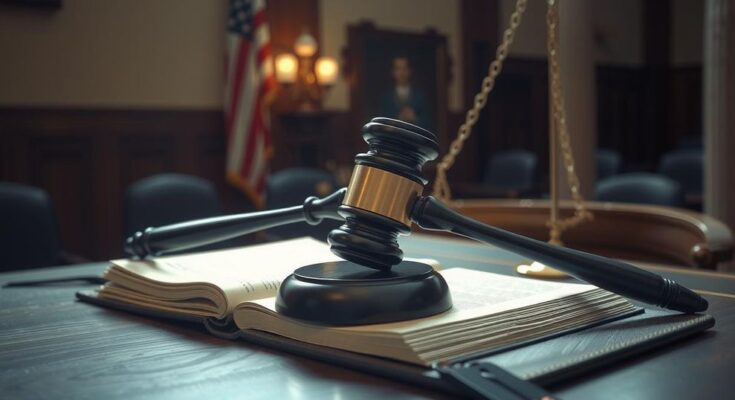The April 2025 Wisconsin Supreme Court election is poised to be an expensive and contentious battle between liberal Judge Susan Crawford and conservative Judge Brad Schimel. This election could determine the court’s ideological balance and impact key social issues, including abortion rights and labor protections. With significant financial contributions from influential political donors, the outcome may reflect broader national political trends.
The upcoming Wisconsin Supreme Court election in April is emerging as a highly competitive political event, potentially shaping the future of the court and critical social issues including abortion rights. The race features Dane County Circuit Judge Susan Crawford, a liberal candidate, against conservative contender Brad Schimel from Waukesha County. As the contest unfolds, it highlights the stark divisions in voter sentiment regarding politics in the early months of Donald Trump’s presidency, with implications for issues like abortion and union rights at stake.
Anticipated to be the most expensive judicial election in Wisconsin history, campaign spending may surpass the $51 million spent in the previous race in 2023. Political influencers such as George Soros and Diane Hendricks have been significant donors to their respective party committees, demonstrating the high stakes involved in this electoral battle. Advertising expenditures are expected to rise, as external groups, including those linked to Elon Musk, begin to enter the fray.
The judicial election, although officially nonpartisan, is characterized by intense partisan engagement. Significant figures like Eric Holder and Kamala Harris are endorsing Crawford, while Schimel has expressed hope for a Trump endorsement to bolster his campaign. The dynamics of this race reflect broader national concerns regarding judicial power in addressing pressing political issues, making it a focal point in the continuing American political saga.
Wisconsin serves as a critical swing state, with a recent history of close elections influencing national outcomes. The 2024 election results further emphasize the significance of the Supreme Court seat and how it may reflect current public sentiment. The outcome could signal Democratic resilience or indicate ongoing Republican momentum post-Trump.
Both candidates are preparing for their first debate on March 12, just weeks before Election Day. The election’s stakes are heightened by the court’s potential rulings on pivotal issues, including a century-old abortion ban, union rights, and future legislative maps. With major implications for Wisconsin’s political landscape, this election will undoubtedly engage voters deeply as they assess the path forward for their state and the judiciary’s role in shaping policies.
Crawford has indicated limitations on her judicial comments regarding active cases, including the prevailing abortion law that lacks exceptions for rape or incest. Schimel, who once served as state attorney general, has emphasized the need for legislative input on controversial issues like abortion, insisting that judges should adhere strictly to established laws. The candidates’ differing approaches to critical societal issues will likely influence voter perceptions and campaign strategies leading up to the election.
As fundraising efforts ramp up, both candidates have seen substantial early support in contributions. This early engagement is reflected in advertising strategies, with groups supporting Schimel seeking to amplify their message following significant early investments from various donors. The state’s political climate remains charged, as both major parties prepare for a vigorous campaign trail ahead of the election.
Wisconsin’s Supreme Court race is not merely a local contest; it may have implications extending to congressional control and national political dynamics. Stakes are remarkably high for both sides, as they mobilize grassroots support and financial contributions to secure their influence in critical judicial decisions. The narrative unfolding in this contest signals a renewed importance of state-level elections in affecting broader legislative policy and governance for years to come.
The Wisconsin Supreme Court election slated for April 2025 emerges as a significant battleground between liberal and conservative ideologies, with implications extending to critical issues such as abortion and labor rights. The substantial financial backing from influential donors underscores the high stakes of this election, which may influence not only state governance but also national political trajectories. The results are expected to signal the prevailing voter sentiment in a crucial swing state and set the tone for future electoral contests.
Original Source: www.cnn.com




